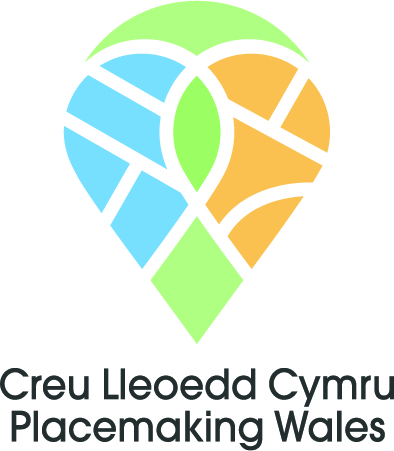
Over 100 of Wales’ leading organisations commit to tackling climate change by signing the Wales Placemaking Charter
Monmouthshire County Council has confirmed its support for the Wales Placemaking Charter, joining 101 other leading Welsh organisations in the fight to tackle climate change and support recovery from the Covid-19 pandemic.
As the latest local authority to sign the Placemaking Charter, Monmouthshire County Council joins Neath Port Talbot Council, Pembrokeshire Coast National Park Authority and Swansea Council. Other signatories include 29 architecture or design practices, 20 membership bodies, ten Government organisations, 11 housing associations including Pobl Housing and seven private housing developers including the UK’s leading housebuilder Redrow and Magor-based Edenstone Homes. All have pledged to:
- Involve the local community in the development of proposals
- Choose sustainable locations for new development
- Prioritise walking, cycling and public transport
- Create well defined, safe and welcoming streets and public spaces
- Promote a sustainable mix of uses to make places vibrant
- Value and respect the positive distinctive qualities and identity of existing places.
Welcoming the latest signatory to the Placemaking Charter, Minister for Climate Change Julie James said: “The backdrop to the placemaking charter’s first year has been like no other and it is very pleasing to see that more organisations are committing to the challenge of increasing the quality of development across Wales.
“I’m delighted that another local authority has joined the charter as they are particularly well placed to plan and deliver projects that directly improve places and people’s quality of life. I hope this encourages other local authorities to join in the near future.”
Councillor Sara Jones, Monmouthshire’s Deputy Leader and cabinet member with responsibility for placemaking said: “I’m proud that Monmouthshire County Council has become a signatory to the Placemaking Wales Charter. Our aim is a thriving and well-connected sustainable county that gives people the best possible start in life, maximises the potential of our environment, improves well-being and focuses upon the future. Recent times have shown us how important the places where we live are to our quality of life. Our focus must now be on the future; building back better by creating sustainable places that aid regeneration and improve health and well-being. Good placemaking is at the heart of our local development plan and future aspirations and signing the Wales Placemaking Charter emphasises our commitment to these objectives.”
Carole Anne Davies, Chief Executive of the Design Commission for Wales added: “The commitment made by those that have signed up to the Placemaking Charter represents a key response to more sustainable places and addressing climate imperatives.
“In just one year since the launch of the Placemaking Charter, we have seen over 100 different organisations step-up and pledge their support for sustainable development that will leave a lasting legacy by putting the health and well-being of local people at the heart of all developments. This is particularly important given the need to help protect communities from the effects of climate change.
“Wales really is leading the way – we are the first nation to have a dedicated Minister for Climate Change and we now also have a new and updated Technical Advice 15, further supporting planning policy that requires developers in Wales to consider potential future flood or coastal erosion due to global warming. That’s also a UK first.
“Now, more than ever, we need to think about places and placemaking. That’s why it is so encouraging to see these organisations join us in making Wales a better place with newly developed or regenerated areas focussed on people and communities that are active and socially connected. We will of course be keeping an eye on commitment being carried through to delivery and expect to see significant positive change.”
The Placemaking Charter was developed by the Welsh Government and the Design Commission for Wales in collaboration with the Placemaking Wales Partnership – a multi-disciplinary group representing professions and organisations working within the built and natural environment. Further information is available at https://dcfw.org/placemaking/

